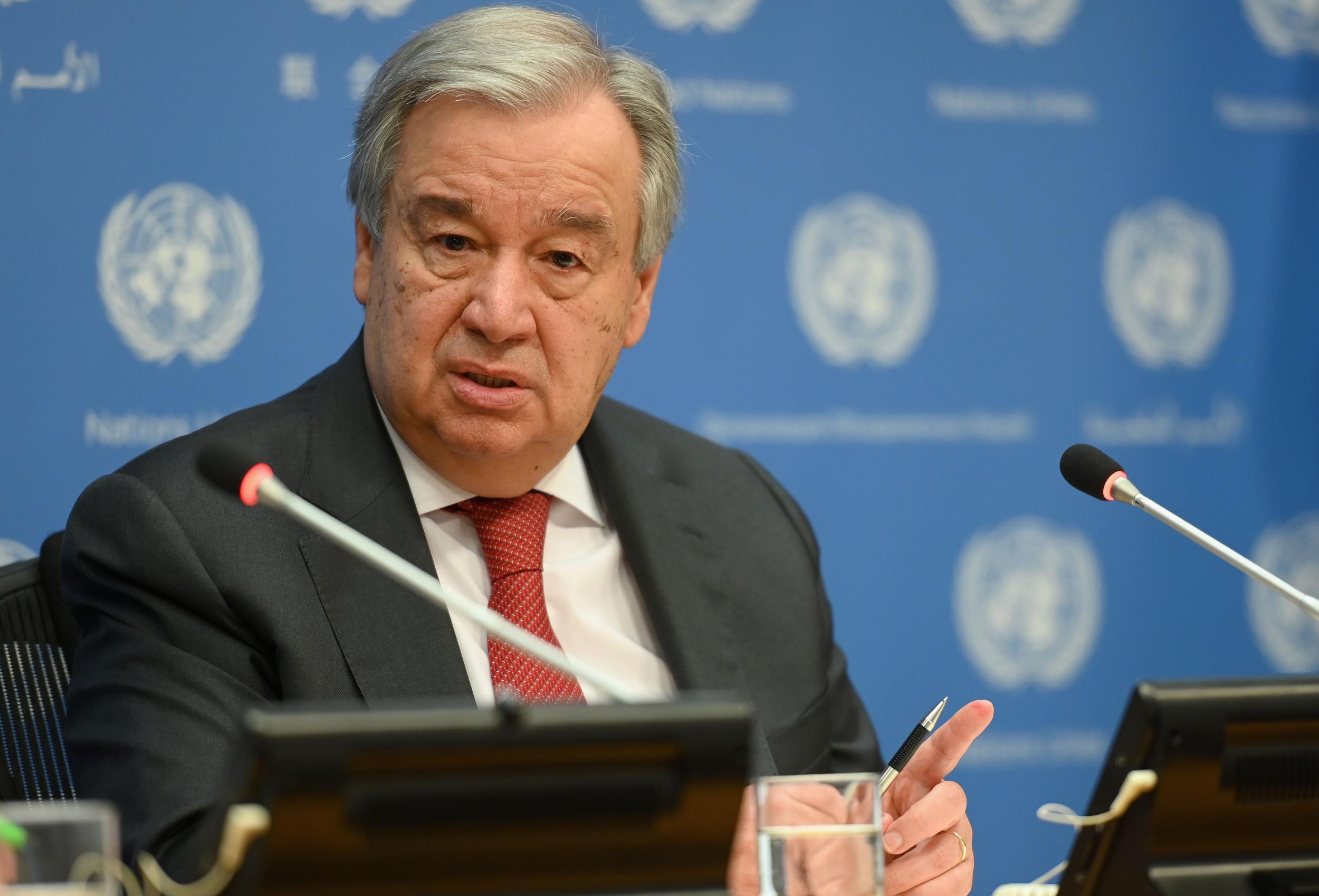UN chief warns against countries adopting ‘repressive measures’ amid coronavirus crisis
Antonio Guterres released a UN report highlighting how human rights should guide the response and recovery to the health, social and economic crisis gripping the world
Your support helps us to tell the story
From reproductive rights to climate change to Big Tech, The Independent is on the ground when the story is developing. Whether it's investigating the financials of Elon Musk's pro-Trump PAC or producing our latest documentary, 'The A Word', which shines a light on the American women fighting for reproductive rights, we know how important it is to parse out the facts from the messaging.
At such a critical moment in US history, we need reporters on the ground. Your donation allows us to keep sending journalists to speak to both sides of the story.
The Independent is trusted by Americans across the entire political spectrum. And unlike many other quality news outlets, we choose not to lock Americans out of our reporting and analysis with paywalls. We believe quality journalism should be available to everyone, paid for by those who can afford it.
Your support makes all the difference.UN Secretary-General Antonio Guterres said on Thursday the coronavirus could give some countries an excuse to adopt repressive measures for reasons unrelated to the pandemic as he warned that the outbreak risks becoming a human rights crisis.
Guterres released a UN report highlighting how human rights should guide the response and recovery to the health, social and economic crisis gripping the world. He added that while the virus does not discriminate, its impacts do.
The new coronavirus, which causes the respiratory illness Covid-19, has so far infected some 2.57 million globally and 178,574 people have died, according to a Reuters tally. The virus first emerged in the Chinese city of Wuhan late last year.
“We see the disproportionate effects on certain communities, the rise of hate speech, the targeting of vulnerable groups, and the risks of heavy-handed security responses undermining the health response,” Guterres said.
The UN report said migrants, refugees and internally displaced people are particularly vulnerable. It said more than 131 countries have closed their borders, with only 30 allowing exemptions for asylum-seekers.
“Against the background of rising ethnonationalism, populism, authoritarianism and a pushback against human rights in some countries, the crisis can provide a pretext to adopt repressive measures for purposes unrelated to the pandemic,” he said. “This is unacceptable.”
The United Nations did not give any specific examples of such measures.
Guterres called on governments to be transparent, responsive and accountable and stressed that civic space and press freedom were “critical”. He said: “The best response is one that responds proportionately to immediate threats while protecting human rights and the rule of law.”

With businesses shut down and hundreds of millions of people told to stay home to avoid spreading the virus, the International Monetary Fund has predicted the world will suffer its steepest downturn since the Great Depression of the 1930s.
The UN report said the pandemic was creating further hardship that “if not mitigated, will raise tension and could provoke civil unrest”, adding that this could then spark a heavy-handed security response.
“In all we do, let’s never forget: the threat is the virus, not people,” Guterres said.
Reuters

Join our commenting forum
Join thought-provoking conversations, follow other Independent readers and see their replies
Comments